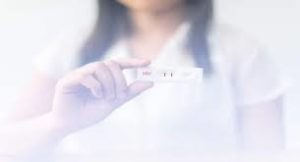HIV Testing at Home is a popular alternative to traditional clinic-based testing. The home-based approach offers more privacy and convenience for HIV patients. However, it does have some drawbacks. One such issue is the lack of healthcare provider engagement. Whether it’s a negative or positive result, it’s important to connect a positive ST with a healthcare provider for confirmation or additional resources to help the patient cope with the results.HealthyMD, Inc. – HIV Test has some nice tips on this.
First, you need to determine if you are at risk for HIV infection. If you think you have been exposed to HIV, you should not have sex while you are awaiting your results. HIV virus levels are high in people with acute infection, and they are easily transmitted to others. However, the positive test results from HIV testing can help diagnose the disease.
The home-based HIV testing kits are safe and convenient. These kits require a dried blood sample, which is then sent to a laboratory for processing. Results are usually available within a week. Unlike traditional clinic-based tests, HIV testing at home can be more convenient for patients who do not have access to a medical provider. In fact, home HIV testing can be an effective way to screen HIV infection early.
Home-based HIV tests are more accurate than conventional clinic tests, but they may not be as reliable as those administered by medical practitioners. The accuracy of these tests depends on the follow-up procedures. In some cases, the results may be false if a step is missed or if the sample is compromised accidentally.
Besides being cost-effective, HIV testing at home can be helpful for many men. Because men who test positive for HIV are likely to disclose the positive result to other people, they are likely to spread the virus to others. A mail-in HIV test can also be helpful if you are not sure if you have the disease.
There are many places where you can get an HIV test for free or at a low cost. Some health care providers also offer at-home HIV testing kits that are approved by the WHO. These at-home kits encourage more people to get tested, receive treatment, and take HIV precautions. They are easy to use and cost-effective.
Home HIV testing kits can be used to detect HIV antibodies in saliva. They can be purchased online or from a pharmacist. These kits require a small amount of saliva to collect and take a few minutes to produce results. These kits are reliable, as long as you follow the instructions, and use a certified laboratory.
Home HIV tests are available with many limitations. Some require you to perform a finger prick, while others require an oral fluid sample. The results of these tests will help you determine if you’re HIV-positive or not. However, home HIV testing is not recommended unless you’re a physician.

